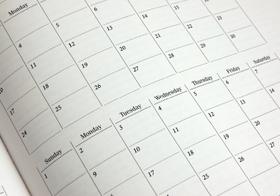It's tough enough getting an interview in the first place. So, why destroy your chances by turning up in the wrong attire? Because you are applying for a teaching position in a private school, you must be particularly aware of how you dress. Why is how you look important? The first impression an interviewer has of you is a lasting one. This snapshot of you must convey a positive image of who you are as well as the value which you bring to the situation. Indeed, many hiring decisions are made subconsciously as soon as the interviewer looks at you.
Because the job market is highly competitive, your primary goal is to have the first interview go so well that you make the shortlist for second interviews. The way in which you dress is one part of the picture your future employer will have. Make sure that you create the very best impression possible.
Dress to the level of the job environment.
Teachers are exemplars to the young people they teach. The way you dress sets an example, just as your speech patterns do. It is always sensible to dress conservatively when you interview for a teaching position. Nor does it matter what that position is. Whether you are applying for the Spanish teacher position or the Robotics teacher position, you must present yourself as a professional brimming with ideas and values who will make employers immediately think "Ah! She will fit right in." What may not be apparent to you is the fact that you will not only teach young people, but you will also be the face of the school when you appear on public occasions such as concerts, lectures, and fundraising.
For Men
Looks which work
The standard classic prep look is always acceptable in private school circles. A blue or white oxford cloth button-down shirt paired with an old school tie or rep pattern is understated and elegant. Add khaki or grey slacks to that together with black socks and a slip-on loafer style shoe and you are all set. If you wear bowties, then do so. Not the big floppy kind, but instead a conservative one in a rep pattern will make the right statement. A blue blazer is appropriate for cooler parts of the country. As a rule, you should wear your jacket and only remove it if invited to do so. Your hair should be neat and trimmed. That includes beards and mustaches if you have them.
The following video gives you some guidance on how to dress.
Now, if at this point you are complaining that you will look like the headmaster, that's the point. You want to dress at least one level above the position for which you are applying. What will the person who is interviewing you be wearing? Take your lead from him or her. Besides, wouldn't you like to be the head of school one of these years? it couldn't hurt to dress like one for your first interview.
What about religious garb? If you wear a yamulka or a turban as part of your daily routine, there is no need to change that, particularly when you are applying for a position in a religious school that follows your dress code.
Looks that don't work
A fashionista look of any kind will most likely raise eyebrows. So will a bold hairstyle like a mohawk or a mullet. If you are bald, accept that fact and resist an unflattering combover, or just as nasty, a poor-quality hairpiece. Also verboten are dye jobs, diamond pinky rings, Rolex watches, and other ostentatious accouterments. Save them for another non-critical occasion where a different kind of impression doesn't matter. Cover your tattoos. Remove any metal from piercings. Don't wear aftershave or cologne. Your body language is important too. Sit tall. Be alert. Look the interviewer in the eye. Smile.
For Women
Looks which work
A classic look suitable for any professional, semi-formal setting is acceptable. If you have a large bosom, manage your decolletage so that it is not the center of attention. A jacket over a blouse paired with a skirt or pants makes the right impression, assuming, of course, you select conservative colors. Comfortable shoes can be flat or have a short heel. Stop and think about what the person who is interviewing you will be wearing. Follow suit. Keep the makeup, perfume, and jewelry toned down. You are not meeting people for a night on the town. It is a job interview.
What about religious garb? If your religion requires you to wear a head covering or a burka, then do so, particularly when you are applying to teach in a religious school that follows your dress code.
Looks that do not work
Loud colors, short or tight skirts, heavy makeup, excessive perfume, and body language which screams "I'm sexy" are not appropriate for a job interview. Nor is the opposite appropriate either. There is no need to dress like your 80-year-old Aunt Mildred. Your interview attire should project competence, professionalism, and confidence.
Give your interview outfit a trial run.
It never hurts to have a trusted friend, preferably an older one, pass judgment on your interview attire. He or she will spot things that you may have missed. More to the point, she will not be afraid to tell you. That second set of eyes could make all the difference between success or failure at your all-important teaching job interview. You will be competing against the world in this very competitive job market. The way you look and how you handle the interviewer's questions will determine whether you make the cut and receive that critical second interview.
Review the school's website.
I know that you have been looking at the school's website in detail. Now, take the time to circle back and look very carefully at all the pictures of the staff. How are they dressed in the classroom? What are they wearing for formal occasions such as graduation? If you have a friend who already teaches at the school, ask her for advice on how to present yourself.
Now relax! Take a deep breath. After all this careful preparation you will do well convincing the interviewer that you deserve a place on their shortlist.
Questions? Contact us on Facebook. @privateschoolreview






















